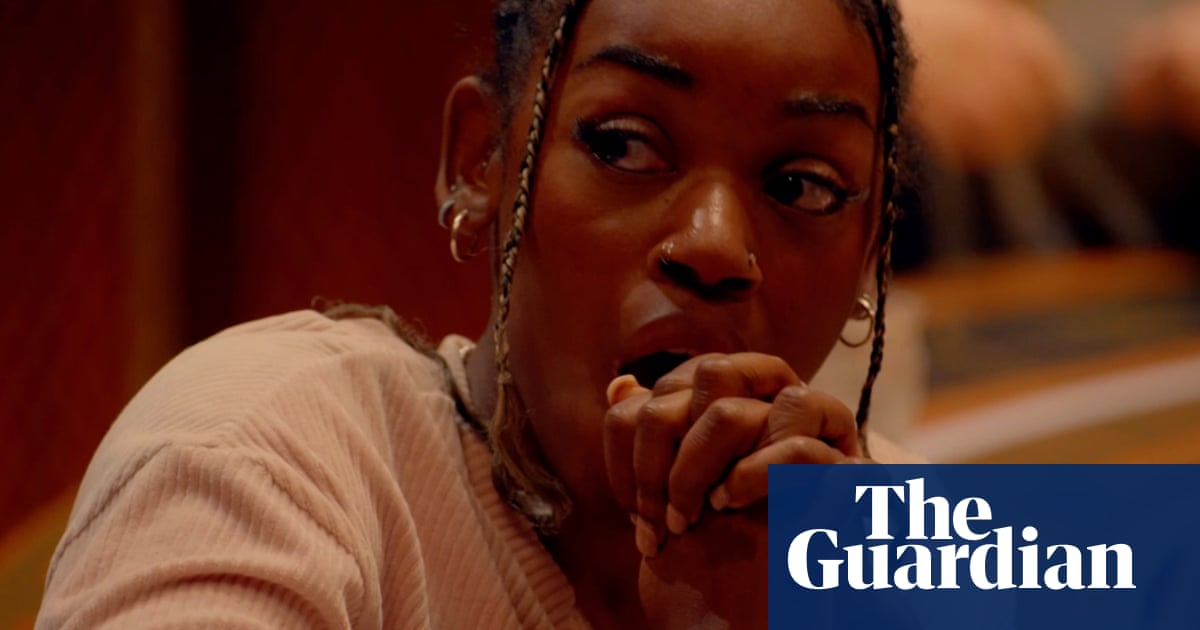
he start of Pete Evans’ long goodbye from the mainstream first became apparent in 2012. After two seasons as a judge on the successful Channel 7 cooking show My Kitchen Rules, co-owner of the glamorous Sydney hotspot Hugos (in its heyday voted best pizza in the world) and a guest on cooking shows such as MasterChef, Sunday Life magazine approached him to take part in their weekly column, My Day on a Plate.
The column – a chance to perve on celebrities’ sometimes bizarre food habits – often provokes mockery, yet Evans topped them all. His morning began with “a smoothie of blended alkalised water, organic spirulina, activated almonds, maca, blueberries, stevia, coconut kefir and two organic, free-range eggs.” The howls of derision could be heard all over the internet and in homes around Australia. Just what the hell were activated almonds?
While activated almonds (nuts soaked for 24 hours in water, then dried out again over a low heat) have crossed over to the mainstream and can now be found on supermarket shelves, over the last eight years Evans has been walking a tightrope between two worlds. In one world he’s a prime time television personality and author whose cookbooks, with their wide availability and low price point, have brought him into millions of homes.
In the other world he’s a promoter of alternative medicines and health claims that have been slammed by medical authorities, caused his books to be pulled from shelves and most recently attracted penalties from the Therapeutic Goods Administration for promoting a $15,000 light device that could be used in relation to “Wuhan Coronavirus”. The TGA said the claim had no apparent foundation.
Evans, 47, finally severed ties with the mainstream last week, when the contract for his long-running judging gig at MKR was not renewed.
It’s unknown whether the decision is a cost-cutting measure by Channel 7, which has been hit hard by the Covid-19 advertising downturn, or a response to the latest controversy.
But since then, Evans has been let off the leash – a freedom he appears to be relishing.
Consuming his hugely popular social media channels – he has 1.4 million followers on Facebook and 234,000 on Instagram – has been a wild ride.
He posted an interview with the Holocaust denier David Icke, who was spouting 5G conspiracies and claiming Covid-19 was fake and shared stories about the link between Bill Gates and Covid-19.
On Mother’s Day, Evans posted a photo of his elderly mum with her grandchildren and revealed that he is disregarding social distancing guidelines and embracing her every time he sees her.
And in a since deleted post, he warned followers that high-profile figures were being executed under the guise of having Covid-19. He recently took part in the surge of disinformation around Covid-19 and anti-vaxx theories when he posted on Facebook a link to the discredited conspiracy theory film Plandemic before it was removed.
A theme that recurs in his social media feed is mistrust of authorities, the mainstream media and a belief that the real truth is being hidden from the people.
After leaving MKR, on Instagram under a picture of Donald Trump and hashtagged with #obamagate he wrote: “This may be a great time to take off the mainstream media lens, if that is what you have been viewing the world through, and perhaps look through a different lens....or not.
In a Good Weekend profile in 2016, he told the reporter: “I believe we have the wrong information taught to us.” Taught to us by whom? “The people in charge.”
While on the face of it Evans’ departure from his $800,000 a year MKR gig looks like a personal failure, Evans is on track to becoming far more famous and influential outside the mainstream media than within it.
While MKR and his restaurants made him well known in Australia, global recognition has come from leading a community that seeks to challenge orthodoxy.
This community has the potential to expand during the pandemic and economic downturn, according to Dr James Rose, a social anthropologist at the University of Melbourne.
“When you have a population-wide crisis such as a pandemic, people whose idea systems are fragile can be driven to act out of fear. The run on toilet paper and panic buying was an expression of that. Conspiracy thinking is a consequence of increased fear when people’s idea systems break down,” says Rose. “Excessive and unreasonable conspiracy thinking arises when some people attempt to fill gaps in idea systems that are breaking down. Their existing ideas no longer help them understand a changing world, so they look around for new ideas to fill the gaps.”
These include ideas such as the virus being caused by 5G – categorically found to be false – or conversely not existing at all.
Evan’s social media platforms have a massive, global reach and include a Facebook page that has more followers than a lot of mainstream news organisations, a podcast and a role in the controversial Netflix documentary The Magic Pill. Another documentary on cannabis is in the pipeline.
Adam Ferrier, a consumer psychologist and founder of Thinkerbell brand agency, told Guardian Australia that “if you have a strong opinion and a distinctive brand then there’s never been a better time to powerfully amplify your message on different platforms. Evans doesn’t need traditional broadcast television any more.”
Years in the public eye have meant that Evans has already built a solid following. Now, as his message is increasingly unorthodox, followers aren’t necessarily being repelled by Evans but are supporting him, says Ferrier.
“If you are a person or brand with a lot of followers and you are under attack, the followers like you even more because they have sunk in capital and attention into your brand.”
Capital and attention include watching Evans every night on MKR, buying his cookbooks and trying his paleo diet.
“They have already invested in him, they have to keep on rationalising it,” says Ferrier. “If you’ve sunk costs into something, it’s hard to pull out.”
Ferrier, who has also worked as a cult buster, says: “Everyone who has a cookbook in his house is one step closer to believing his bullshit.
“There is a massive difference between having a cookbook and believing in the conspiracy theories – but there could be lots of stepping stones on the way. He’s a judge on MKR, you try his paleo, you start following his social media or his podcasts and the conspiracy theories get to you via these channels. It’s called the foot-in-the-door technique – as soon as you’ve listened to a few sentences then you’ll listen to a few more and then step by step you’ll start believing in something you once thought was absurd. He’s like a classic cult leader.”
Evans also “cleverly” selects big targets – the medical establishment, the media, “the government putting fluoride in the water” – and “taking on these big institutions gives him bigger standing”, says Ferrier.
Says Rose: “Conspiracy thinkers often seek out explicit group membership in order to build a stronger sense of their own identity. They are trying to make sense of their changed environment in an immediate way by imagining connections between themselves and others, in an effort to feel safer and more in control of a confusing situation.”
Sometimes, a sense of superiority can also pervade the identity of conspiracy-based communities. “For some people, positioning themselves above others is a source of reinforced identity – and Pete Evans and his community are very explicit about it – they believe they are better, more pure, that they are fitter and more active than other people. Pete Evans is a businessman – he promotes a brand which is based on creating imaginary hierarchies in society – so he sells the idea that you can be superior to other people if you follow his diet. For some people this is reassuring.”
The feeling of superiority can also mean that people who attack the ideals of the group are dismissed as unevolved, brainwashed or sleepwalking – thereby cutting off the circulation of any meaningful debate or dissent.
Ferrier believes Evans’ power is increasing. “It depends what’s driving him, but the more influential he becomes, the bigger the harm.”
In many ways, Evans is tapping into a prevailing mood – anxiety, confusion and distrust of authority.
“I think he’s always had the ability to have the taste of popular culture – ever since Hugos. He understands mass consumerism. Selling pizza for $35 and selling his theories is still part of the mass consumer mindset continuum,” says Ferrier.












